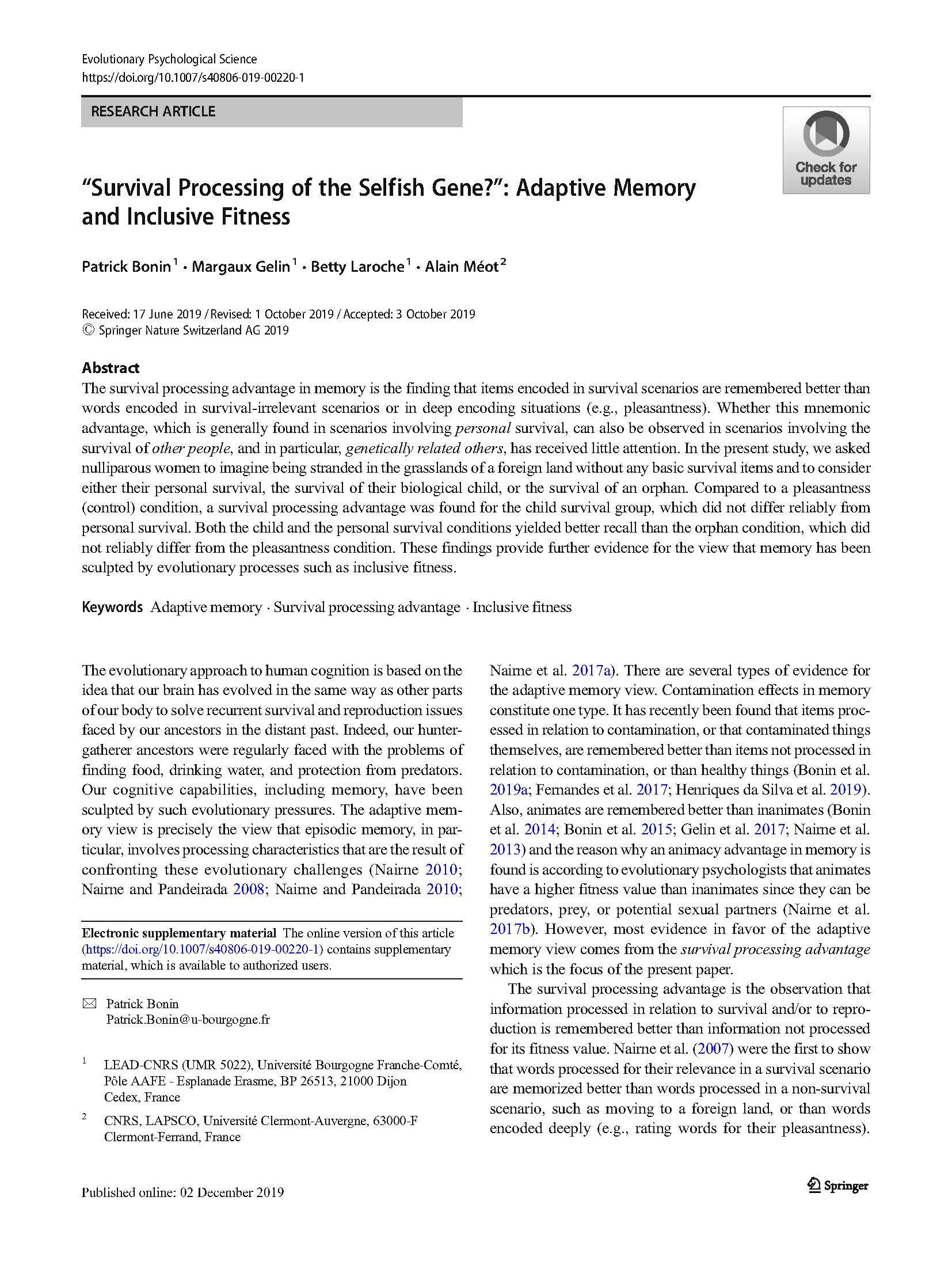The survival processing advantage in memory is the finding that items encoded in survival scenarios are remembered better than words encoded in survival-irrelevant scenarios or in deep encoding situations (e.g., pleasantness). Whether this mnemonic advantage, which is generally found in scenarios involving personal survival, can also be observed in scenarios involving the survival of other people, and in particular, genetically related others, has received little attention. In the present study, we asked nulliparous women to imagine being stranded in the grasslands of a foreign land without any basic survival items and to consider either their personal survival, the survival of their biological child, or the survival of an orphan. Compared to a pleasantness (control) condition, a survival processing advantage was found for the child survival group, which did not differ reliably from personal survival. Both the child and the personal survival conditions yielded better recall than the orphan condition, which did not reliably differ from the pleasantness condition. These findings provide further evidence for the view that memory has been sculpted by evolutionary processes such as inclusive fitness.
“Survival processing of the selfish gene?”: Adaptive memory and inclusive fitness
